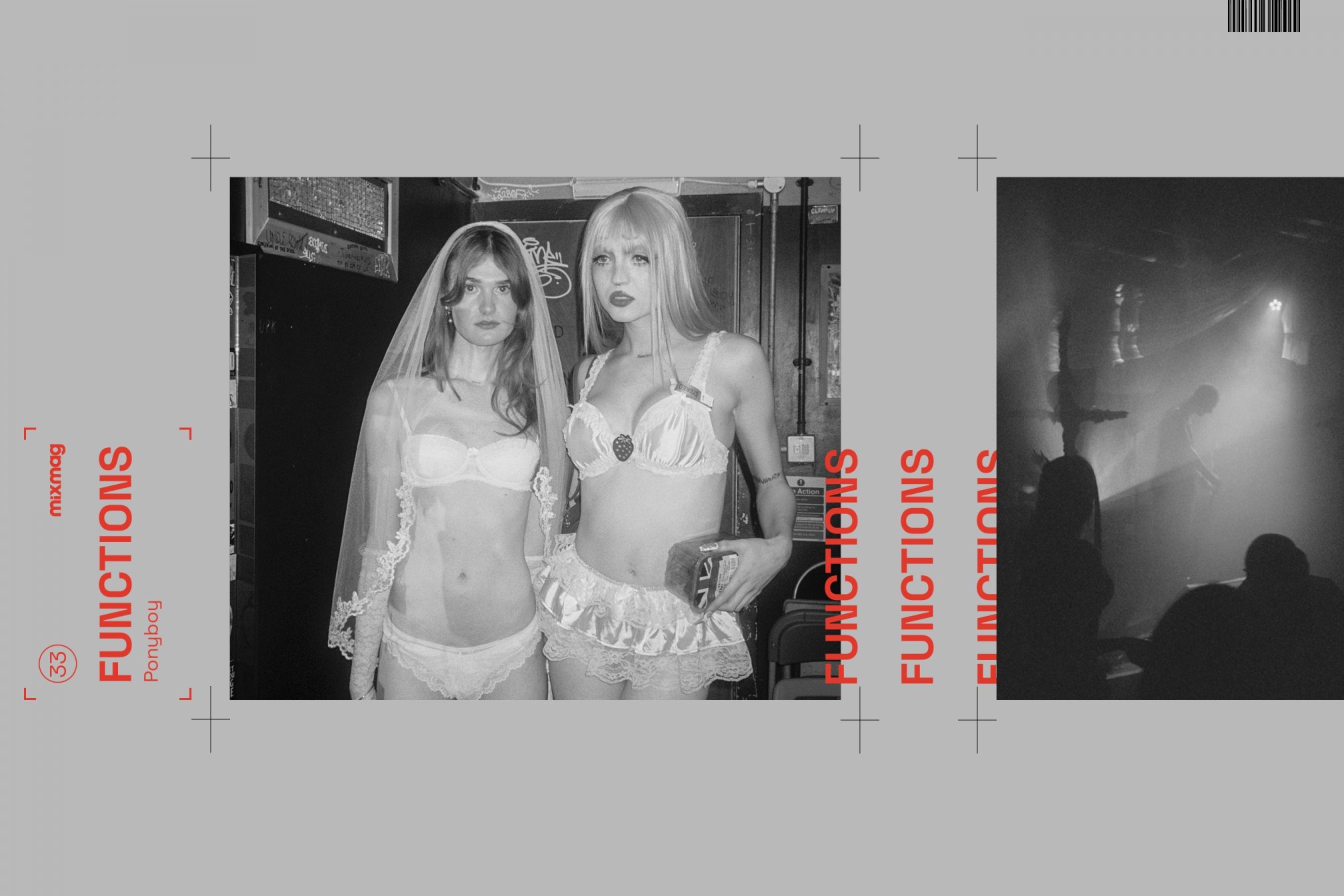 Features
Features
"Transitioning together": Ponyboy is Glasgow's hair salon-cum-club night combining music, art, and performance
Named after a song by SOPHIE, Ponyboy creates a world where trans beauty is celebrated and archived. Meena Sears speaks to co-founder Dill about creating safer spaces for Glasgow's trans club community
Functions is our monthly interview series profiling parties from across the world. This week we meet: Ponyboy.
There aren’t many club nights that involve a cast of over a dozen people getting dressed up, having their hair and make-up done, and rehearsing together ahead of the event. Seemingly Ponyboy isn’t just any regular party – for the Glasgow-based, trans-led club night, co-founders Reece Marshall and Dill Dowdall have a new creative vision.
Having started out as a launch party for the opening of Reece’s queer-friendly hair salon of the same name in November 2022, Ponyboy has grown to become one of the city’s most iconic underground events, with a particular focus on creating safe and inclusive spaces for Glasgow's trans club community.
What makes Ponyboy special is its unique integration of music with style, immersive art, and performance. Speaking over the phone from Glasgow, Dill tells us how each event takes on a different theme, which is then filtered through every single aspect of the club night, from the performances to the set design. The cast - made up of predominantly trans DJs and dancers - get their hair styled by Reece, while Dill handles all things production, creating a clear curatorial journey throughout the night that every person on the team contributes to.
Read this next: "Symbol of resistance": Tijolo is the community-first party series uniting dancefloors from New York to Brazil
Over time, as Ponyboy has become ever more ambitious, the party's go-go dancers have started to practice their performances ahead of their events, putting together choreographed productions that immerse Ponyboy's audience further into the intended world. Through hiring a photographer to document the night and the people behind it, Dill and Reece hope to play a part in archiving trans beauty.
“The trans community contributes so much to culture, but it isn't always recognised,” says Dill. “Throughout history, so many trans people have died young, or so much of the trans experience (as people who aren't trans understand it) is rooted in pain and negativity. So, we’re trying to create an alternative narrative, to amplify the community around us. I hadn’t personally experienced [an event like Ponyboy] in Glasgow, in terms of platforming the trans community specifically. So I created what I felt was missing within the queer scene here.”
"It’s interesting because when people talk about creating utopias within club spaces, often people sigh. But for me, using the idea of a radical intersectional trans utopia is almost like a methodology through which to build everything else," says Dill. "If the aim is to create a window into trans utopia then I’m thinking about how we facilitate trans joy; how we ensure people feel safe; have a source of income and the support to fully realise their vision for their look or DJ set or performance, and express something that feels necessary. Utopia isn’t possible because the world is transphobic, but utopia as a vehicle can be very powerful."
Named after a song by the late DJ and producer SOPHIE, Ponyboy aims to spotlight the pioneering spirit of trans creativity by showing how the community has always been at the forefront of fashion, art, music, and culture. “SOPHIE was an artist who looked at the technology around her and used that to build an extension of herself, creating a fully realised version of her trans femininity,” explains Dill. And Ponyboy follows suit, using cutting-edge techniques to push multiple creative scenes forward at once – something Dill compares to the journey towards self–actualisation that comes with transitioning.
While the club night has grown year on year in both scale and popularity, it's still connected to the original hair salon, creating a unique fusion of nightlife and fashion, with an emphasis on centering the trans experience. It's a key example of how different scenes can come together to form thriving communities for marginalised groups, and provide a necessary outlet for underrepresented talent.
We spoke with Ponyboy co-founder Dill ahead of the party's anticipated Halloween edition. Check out the Q&A along with some photos from the event below.
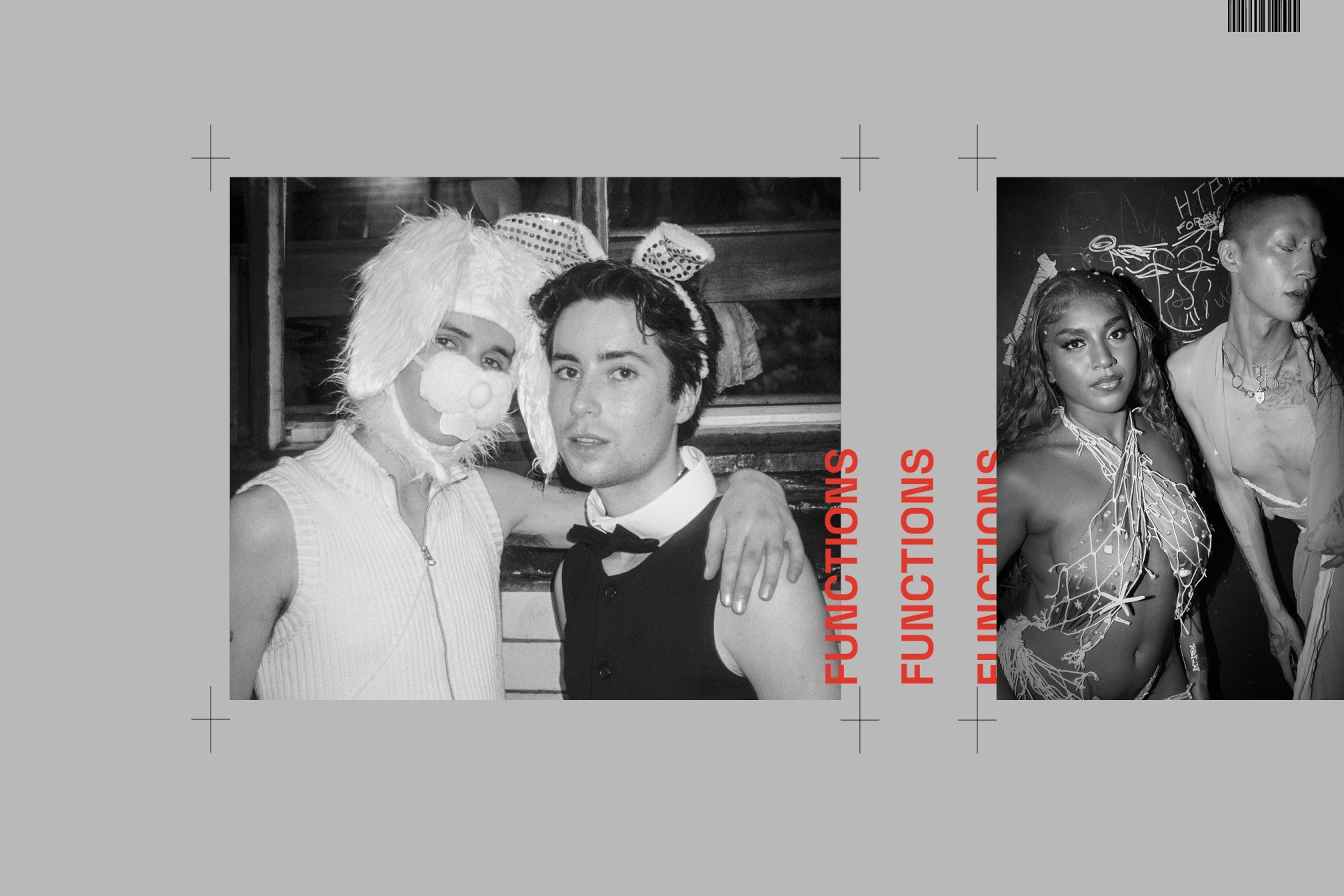
What was the founding vision behind Ponyboy?
To uplift the trans community, create jobs for them, and build a necessary safer space here in Glasgow. We want to help trans people fully realise whatever their goals are as artists, because that rarely exists outside of Ponyboy, if I'm totally honest. So I always come back to that.
How do you ensure that Ponyboy is a safe space for the trans community?
I produced a 17-page document outlining our mission statement. There's a shorter version of it on Instagram, and a longer version in our Linktree. I've had very good feedback about it. It’s based on what I was hearing from the community around me, about what is needed for them to feel safe and what could potentially be at odds with that.
You have to see welfare as a working process, because you can’t control how people are going to act when they walk into a club, and welfare is as complicated as the people attending. There are also different challenges as your audience grows, and you move between different spaces, so we’re always learning.
We advise people to read over the mission statement before every event. It's like a social contract that you're singing when you walk in, and, if you don't abide by it, we have a zero tolerance policy. At the start, we didn’t have any incidents, but as we’ve grown we’ve had the odd thing happen where we’ve had to ban people.
I know the amount of hostility that trans people face, and Ponyboy is one of the only spaces where there's a level of exhalation from that. So, preserving the party’s safety is our top priority. Everything else comes second. If it got to a point where we were growing, and I felt like welfare was being jeopardised, I would think about scaling back. Or think of ways to tackle that, like sending out secret invitations.
Read this next: No inhibition: From war bunkers to nightclubs, FROTH is re-energising Wellington's club scene
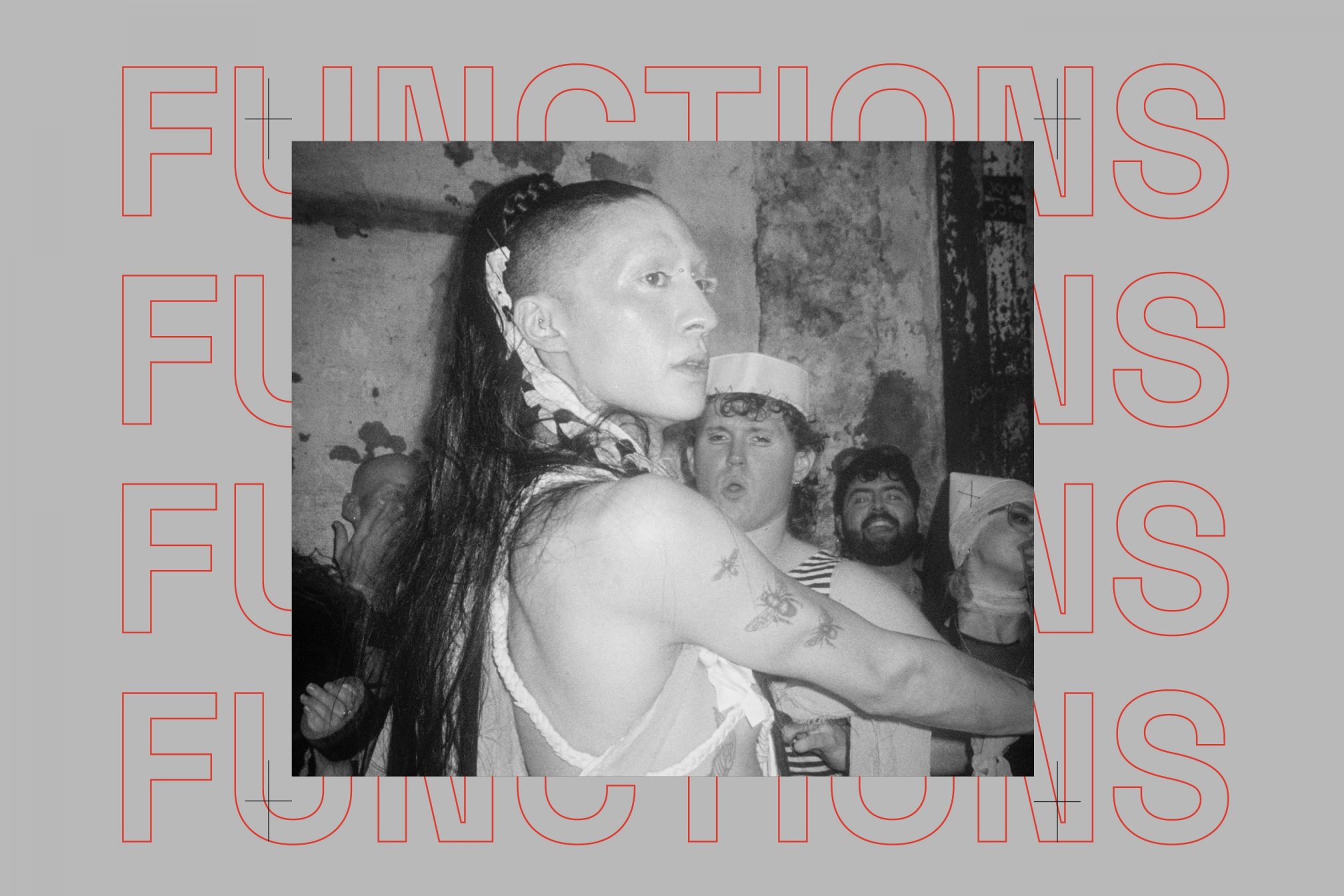
There is more to Ponyboy than just music; what role do visual art, costume design, and performance play in the party experience?
Every event we do, I view as a contained world – everything is happening in conversation with the other parts. One of the main elements of Ponyboy is the looks we create with our cast. When they enter the space, I want them to feel like a fully realised version of whatever they’ve envisioned for themself. My partner Reece maps out the hair, and all of our make-up artists take their own lead.
We also want everyone involved to grow with us, to make it worth their while, so we try not to dictate other’s creativity too much. We collaborate with the cast, so that everyone feels represented. They are all amazing dancers and unbelievable DJs, and I really believe in them as artists, so I’m always trying to find ways to push what they’re doing. It's been really nice to see us all evolve together, and often that means transitioning together as well.
What are some of the best themes you’ve curated?
For our first birthday party last year, the theme was 'Transhumanism'. We worked with the cast to make technological extensions of them, so one of the DJs had a USB attached to her hair that then connected to the decks.
Then, for New Year’s Eve last year, the concept was both a nod to the '60s and a look forward to the future. We had a bunch of TVs on the stage and then ran a live feed of the night onto the screens. It was like we were building Ponyboy TV, and it was a world where trans people were on every channel, as a remedy for the lack of trans representation on real life TV.
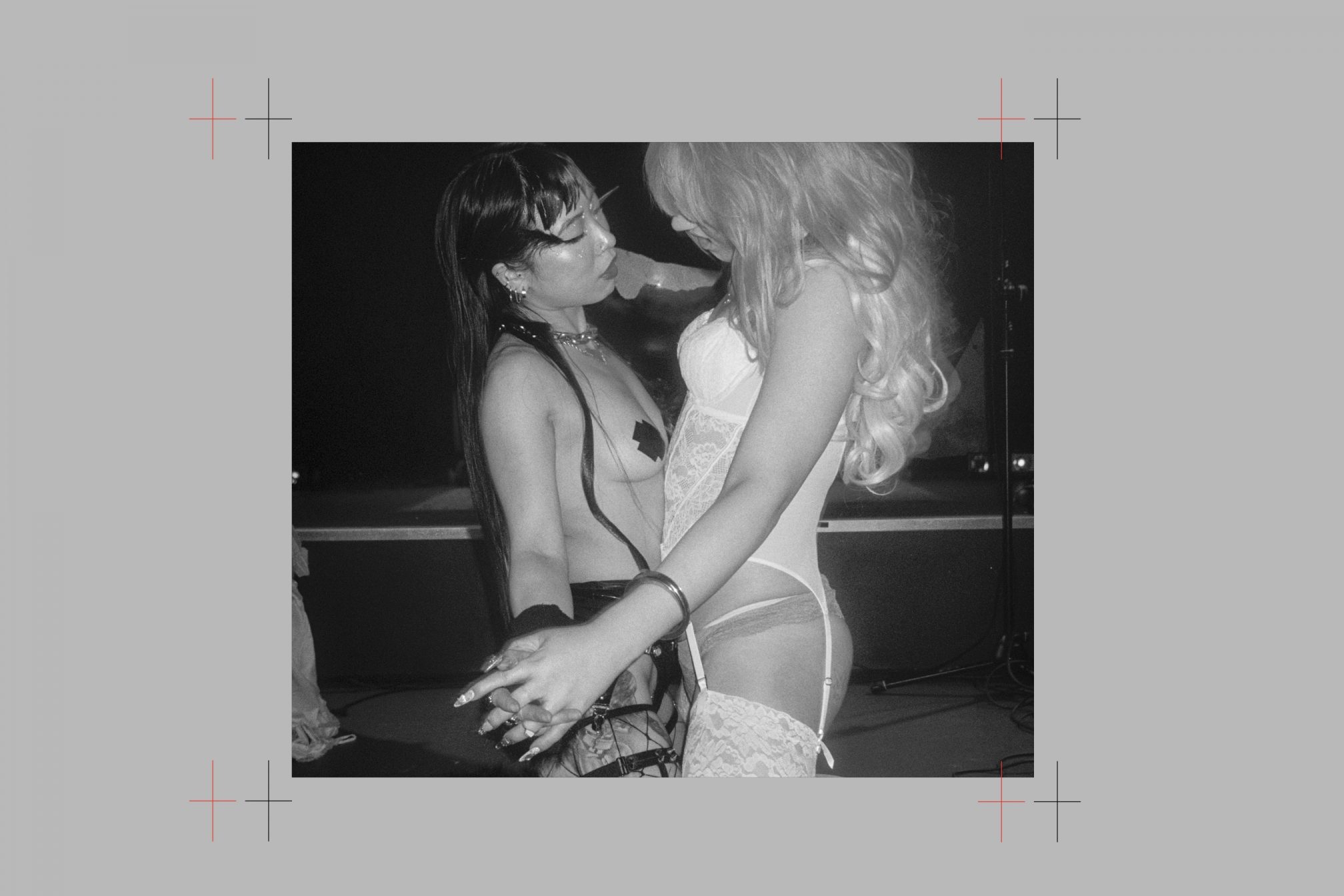
Can you tell me about the hair salon? Do you think there's a connection between hair and nightlife?
We wanted to create a space where the trans community could get a really affordable haircut in Glasgow. We’ve seen how transformative that can be. For a lot of trans people, hair is such a big part of how they see themselves. It’s so connected to people's identity.
Yes, I would say there is a connection between hair and nightlife. So many of the trends we see with fashion and aesthetics are birthed in the clubs and underground spaces and then spread outward. Our events have such a big focus on hair, but hair isn’t a part of everyone's expression, so really it's just about facilitating everyone's vision for themselves. For me, clubs are the only space I feel safe to tell stories with my body. If I did that in the street, I would be attacked – and I would also be dressed like a daffodil. The world isn't ready for that.
Ponyboy gives people permission to really go for it. If you feel like there's something in you that you want to express, or a facet of your identity that you want to reveal, this is a safe space to do it. But I also don't feel like there's any pressure to do that, because so many people just turn up.
Read this next: All about flavour: Chop.Life is serving up amapiano heat to Merseyside's vibe-hungry underground
What’s the Ponyboy community like?
I think of Ponyboy as the performers, the artists, and our audience. Many of our performers have just been people in the club that got up on stage and I've ended up booking them – it's so organic.
I think the trans community is very special in that way, because, for the most part, we all look after each other. The relationship is just different because there's this deep level of shared understanding about how scary the world is. So the Ponyboy community is very strong, because there's more of a visceral need for what we are doing. If I'm honest, we often get told by people that a Ponbyboy party was the best club night they've ever been to. People really sing our praises.
What’s the process behind your musical curation?
Usually, I like there to be some sort of musical journey throughout the night, but I also like to challenge what that can look like. So you’re not going to come in at 10:PM to a chilled ambient set and then it just works up to a hard techno set.
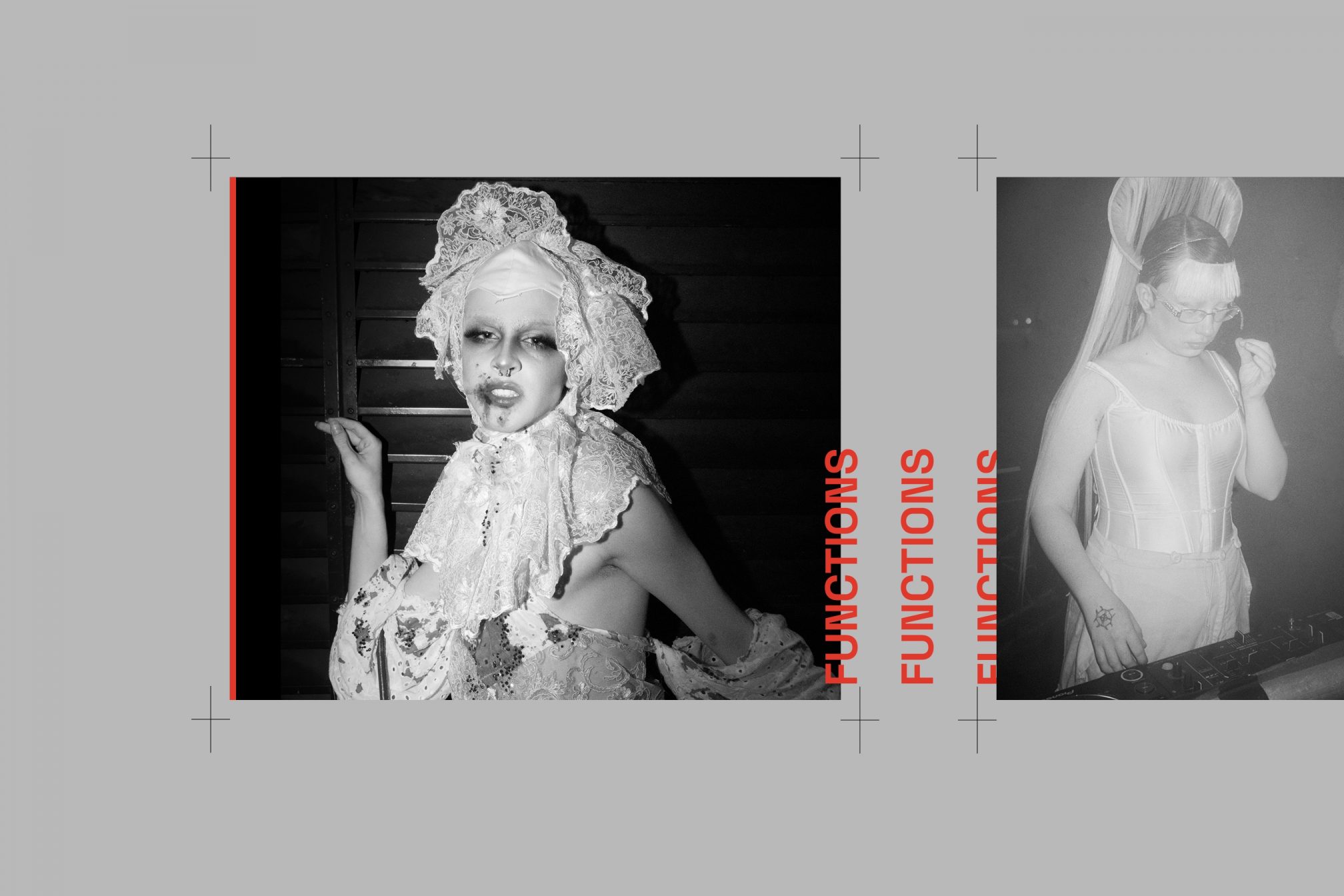
What’s that going to look like for the Halloween event?
For our Halloween event, the music is being curated in the style of a horror movie. So there will be moments that feel safe, but that will be a false sense of safety, and Namasenda will represent that. It’s going to be a bit more glamorous, and that will be supported by our amazing dancers.
But then, that feeling of safety will be followed by: “Oh no, you're not safe, you're actually about to die”, and for that we've got trashedbaby playing a really scary live set where they cover themself in blood. Then we’ve got Miss Cabbage closing, who always gives a really hard performance.
Obviously we do themes, but I never want that to feel limiting. I don't want people to feel like they need to do this specific thing. We keep them very broad and, usually, when those initial conversations happen, people love it and they see it as an opportunity for growth, like a really fun way to push themself. People see the energy and effort that we put in and they really meet us there.
Read this next: Party without borders: North Carolina's No Visa is transcending cultural differences with dancefloor universality
Where do you hold Ponyboy events?
We’ve moved around quite a lot to different venues. But most of our events this year have happened at either EXIT or Stereo. I always try to think about the actual space that the events are in when I'm curating them.
We’re going to be moving to SWG3 next year for quite a few of our bigger events, in response to the increased demand – we're moving from a 500-capacity space to a 700-1,000-person space, which is both scary and exciting.
We’re also keen to explore some non-conventional spaces for smaller events like fundraisers, but our plans are still shaping up.
What other aspirations do you have for Ponbyboy?
I'm keen to do something in Manchester next year and to curate stages for festivals. We would absolutely bring it. I want to bridge the trans community of Glasgow with other queer communities around the world, and to share this network of people that we’ve created.
Follow Ponyboy on Instagram
Meena Sears is Mixmag's Digital Intern, follow her on Instagram


